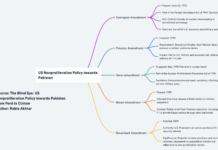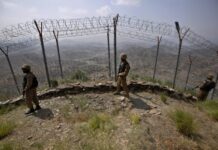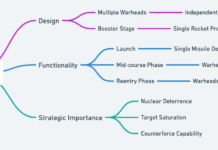Nidaa Shahid
A week after being re-elected as the President of China, Xi Jinping, in a historic move, stepped in to play the role of a mediator in the surprise rapprochement between Saudi Arabia and Iran. The move, according to many, signals a new level of ambition for Mr. Xi, who is seeking to portray himself as a global statesman in the ever-escalating rivalry between China and the U.S. By taking credit for brokering a peace deal in the Middle East, Mr. Xi can be seen as the one seizing on the waning American influence in the region and presenting China as an alternative to and for future diplomatic solutions.
Although traditionally a passive diplomatic actor, China had been preparing for this moment for some time now. In 2021, Iran had offered diplomatic talks to resume ties with Saudi Arabia, but the latter rejected this offer due to deep-seated security disagreements. Eventually, in a bid to improve ties, both sides chose to negotiate with each other via Iraq, under the leadership of the then-Prime Minister Mustafa al-Kadhimi, who served as a facilitator. In 2022, the two countries held five rounds of intensive talks in Baghdad, however, the negotiations came to a standstill when al-Kadhimi was replaced by Mohammad Shia al-Sudani as Prime Minister of Iraq.
Concurrently, in July 2022, the Saudis detained an Iranian pilgrim who had raised his phone displaying a photo of Gen. Qassem Soleimani in Masjid al-Haram in Mecca which added to the disquiet and effectively halted the dialogue process. Although Iran eventually secured the release of the detained pilgrim, the momentum of negotiation was lost, not least because Iraq’s political situation had changed and Prime Minister Sudani showed little interest in continuing the role of a mediator. Frustrated by the interruption, Saudi Arabia requested China to assume a mediatory role when President Xi Jinping visited Riyadh in December 2022. Therefore, a series of China-driven negotiations between the two historic rivals started.
In February 2023, Iranian President Ebrahim Raisi visited China where President Xi greeted him with a 21-gun salute in Tiananmen Square in a show of respect hitherto not given to any Iranian high level official in any of the Western capitals. The rolling of the red carpet was seen to be instrumental in assuaging Iranian concerns about China’s role as a facilitator. During this visit, the Chinese premier also laid bare the terms of the Saudi proposal to the Iranian President with the offer to mediate the proceedings as a neutral third party.
The two sides reached an agreement, with Chinese mediation, and released a joint statement on March 10, 2023 which promised resumption of diplomatic ties between the two. The two sides agreed to reopen embassies in respective capitals amid other diplomatic overtures. The Saudi King has also invited the Iranian President for an official visit to Riyadh, which would be the first visit of any Iranian president to the former in twenty-four years.
The success of this agreement puts China squarely in a leadership position in Middle Eastern politics, a role which was previously exclusive for global power players like U.S. and Russia. It also indicates the Chinese desire to augment its economic clout in the region with diplomatic prowess. China’s approach to mediation in this particular dyad has also been distinct from that of the U.S., which has often relied on military intervention and sanctions to address conflicts in the region. Instead, China has taken a more diplomatic approach, emphasizing dialogue and negotiation. This approach has also been successful in other regions, such as Africa, where China has already established itself as a key mediator in various conflicts.
With this latest diplomatic overture, China is positioning itself as a leader in multilateralism and non-interference. The Saudi-Iran agreement, which is in line with China’s engagement in the region, focusing on delivering mutual economic benefits and a more Eastern centric outlook when it comes to diplomacy. Some experts, on the other hand, view this initiative as nothing more than a strategy to advance the Chinese global political influence with the aim to displace the U.S. as the global policeman, judge, and jury.
At the same time, China’s diplomatic efforts are not without challenges. Its approach of non-interference in the domestic issues of the countries which it is mediating for while also promoting trade and investment has faced criticism for ignoring human rights abuses and authoritarian regimes. Additionally, China’s growing economic influence in the region has raised concerns among some countries, particularly the U.S., about the strategic implications of China’s expansion.
As China seeks to become a more active power broker and mediator not only in the Middle East but also globally, it will need to navigate the inherent challenges which would be inevitable with such a role. As successful as this deal between Saudi Arabia and Iran has been, China is still a relatively new player in the field of international mediation and may lack the experience of traditional mediators such as the U.S. and other western powers.
As for this particular negotiation, Saudi Arabia and Iran already had extensive and interdependent economic ties with China which aided the three sides in negotiating a diplomatic solution. In addition, according to some analysts, Iran and Saudi Arabia were already looking to improve relations, a situation which China was able to capitalize on to further its own diplomatic clout. President Xi, despite his wish to make China a global go-to for diplomatic mediation, may face more difficulty in trying to mediate between countries which are not so amenable to resumptions of relations. Therefore, much still remains to be seen before a concrete judgement can be made on whether or not China, under a third-termer Xi, has risen as the new global diplomatic mediator and to what extent it can replace the existing global order of mediators and facilitators which include the likes of U.S., Russia, and European powers.
Nidaa Shahid is a visiting faculty at the Department of Defence and Strategic Studies, Quaid-i-Azam University, Islamabad.

















